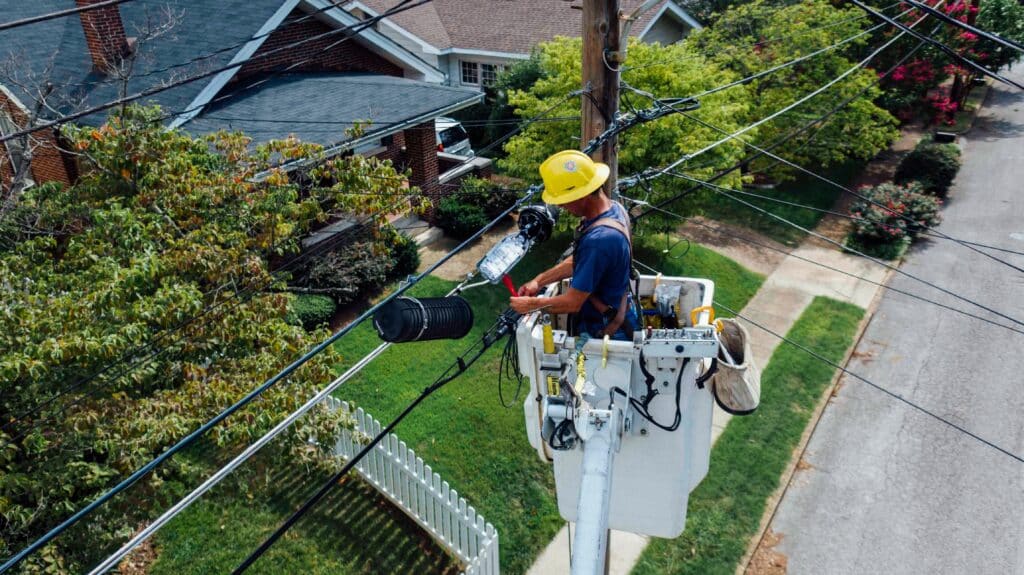Managing a team can be hard enough when everyone works in the same building. But what if you’ve got employees working from all kinds of locations? Many businesses employ workers who work out of the office. These include sales assistants, delivery drivers or contractors (like plumbers, electricians and cleaners). Some of these workers could be in different locations every day. As the company owner, it’s your duty to keep track of these employees without constantly being on their back.

This may seem complicated if you’re hiring field staff for the first time, but in fact it doesn’t have to be at all. Below are just a few tips on how to manage field staff effectively.
Keep everyone on the same page – or rather, the same app
It’s useful to know not just where your workers are, but how much progress they are making. At the same time, it could be useful for colleagues to know where other field staff are and what they are doing.
In days gone by, field workers would have to report to employers on the phone and employers would then have to relay this information to other workers. This could result in slow communication of information.
Tech has sped up this communication. In fact, phone calls are rarely necessary in some trades. By using applications such as this BuildOps field service software, your field staff can check what tasks they have to do for the day and report the progress of each task as they’re doing. It’s possible for you to view this progress at any time by opening up the app. Some programs also allow colleagues to check the progress of other colleagues – which can be useful if both colleagues are carrying out related tasks that lead to the same goal.
Field service applications can also include other possible features such as GPS trackers to check exactly where employees are and instant messaging features to communicate quickly without having to call. Using such software, your field staff are always a click away.
Encourage employees to regularly report back
Field service software is only useful if employees are being actively encouraged to report progress on every task. For example, if you employ a team of appliance technicians and they each have several jobs scheduled to do per day, it could be important to ensure that they submit full reports on each client once they have finished attending to each one.
Some employers prefer to have field employees call them up when reporting progress. This makes it easier to get a detailed report as you can ask questions to clarify certain details. However, it may not always be necessary if employees are carrying out routine tasks.
Make sure that you’re not asking employees to constantly report back to you throughout the day, as it could become time-consuming for you and them. You don’t need to know every detail of their day.
Empower field staff to make decisions and take over tasks (like accepting payments)
Employees should feel that they are able to make some decisions by themselves without having to constantly check with their head office as to how to proceed. This may include being able to schedule future appointments there and then, or even ordering parts that may be necessary for a future visit.
Allowing your field staff to process payments could be useful when it comes to things like plumbing jobs or food deliveries. Instead of having to invoice clients and wait for payments via bank transfer, your field staff could simply accept a card payment there and then. You can do this by supplying each of your field staff with a mobile card reader and training them how to use it. This TechRadar guide to mobile card readers compares some of the best machines to use.
Appoint team managers for field staff teams
If you’ve got an entire team of field staff working in one location, it may make sense to appoint a manager within that team to relay information back to you on behalf of the entire team. This should be someone who you trust is able to keep regular communication and who is able to work closely within the team to provide a detailed account of what everyone is doing.
This team manager could report all information back to you via an app, or they could fill you in over the phone. You may even be able to schedule video calls in which the whole team is able to huddle around so that you can talk to everyone at once. Of course, this won’t be possible if it’s a larger team.
Determine whether you really need to hold physical team meetings
Some employers like to occasionally get all of their field staff together in the same place to help get everyone on the same page. Even if employees are all reporting progress to each other via an app or a group chat, a physical team meeting could still be beneficial as it forces staff to listen to one another (colleagues may ignore information posted on apps and group chats if they do not think it’s relevant to them).
Of course, physical meetings do take up time and they are not always productive. If your team are all communicating with each other digitally and seem to already be on the same page, a physical meeting could be a waste of time as it may just result in people repeating information that everyone already knows. You should only host physical meetings if you feel that certain employees are not staying in the loop and that this is causing problems (such as missing vital information provided by other employees). This meeting could be held in your office, or you could find a location outside of the office to meet if you think this is more convenient.
In all cases, physical meetings should have a clear purpose. While some employers like to schedule routine meetings, you may find that it is more productive to schedule meetings after major milestones or in the lead up to major projects.
Hey, I'm Andrew. I moved to Lisbon, Portugal from Canada. Follow my journey here.
I also happen to run a SAAS that helps marketers give their shared links superpowers. You can create a free account and start being more productive: Check out Linkalytics here.
I'm passionate about AI and using AI tools to help creators and marketers create better content, faster. Get the jump on AI and discover free AI tools every week.
Read my writings on Medium.
Got a marketing question? Need some direction? Book a call with me.

